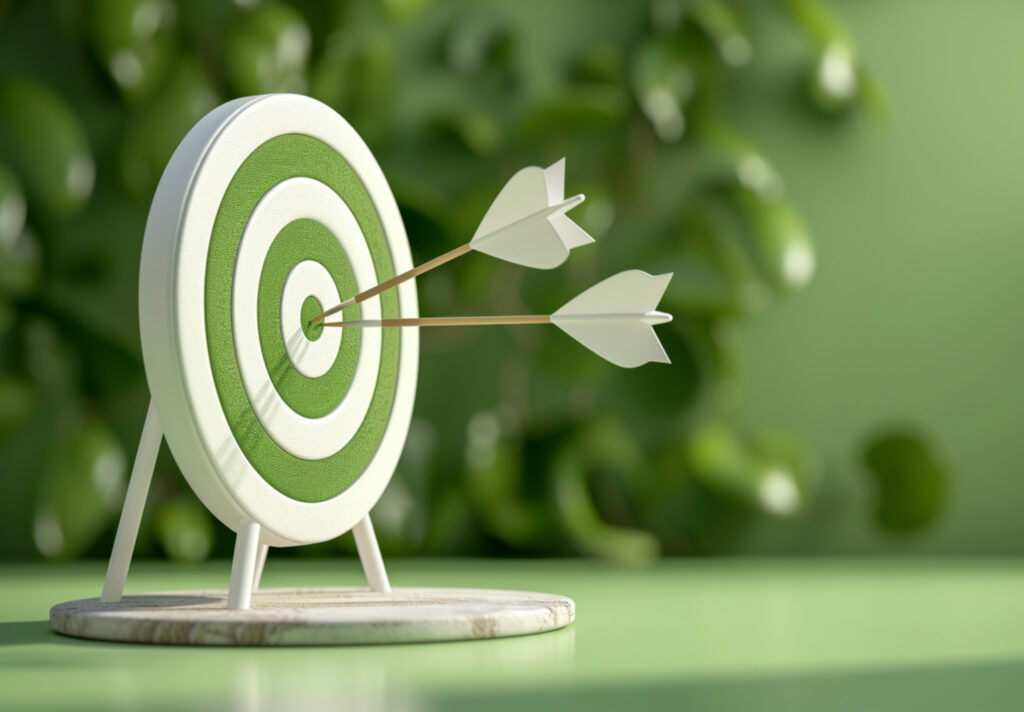Introduction to Goal Setting and Achievement
The Importance of Goal Setting
Goal setting and achievement are fundamental components of personal and professional development. Setting clear, attainable goals helps you focus your efforts, measure your progress, and stay motivated. It’s a powerful process that turns visions into reality, enabling you to achieve your dreams and aspirations.
Defining Achievement
Achievement is the successful completion of a task or goal. It’s the fulfillment of your objectives and the realization of your efforts and hard work. Understanding what achievement means to you personally is crucial for setting meaningful goals.
The Psychology Behind Goal Setting
Motivation and Goal Setting
Motivation is the driving force behind goal setting and achievement. It provides the energy and direction needed to pursue your objectives. Understanding what motivates you can help you set goals that are both challenging and attainable.
Intrinsic vs. Extrinsic Motivation
Intrinsic motivation comes from within, driven by personal satisfaction and a sense of accomplishment. Extrinsic motivation, on the other hand, is influenced by external rewards like money, recognition, or praise. Both types of motivation play a role in goal setting and achievement.
The Role of Self-Determination Theory
Self-Determination Theory (SDT) emphasizes the importance of autonomy, competence, and relatedness in fostering motivation. Goals that align with these needs are more likely to be achieved.
The Science of Achievement
Research in psychology highlights several factors that contribute to successful goal setting and achievement. These include setting specific and challenging goals, developing self-efficacy, and maintaining a positive mindset.
The SMART Criteria
The SMART criteria—Specific, Measurable, Achievable, Relevant, and Time-bound—are widely used to set effective goals. Goals that meet these criteria are clear, trackable, and attainable within a specified timeframe.
The Growth Mindset
A growth mindset, as opposed to a fixed mindset, embraces challenges and views failures as opportunities for growth. This mindset is essential for overcoming obstacles and achieving long-term goals.
Steps to Effective Goal Setting
Identifying Your Goals
The first step in goal setting is identifying what you want to achieve. This involves introspection and understanding your values, passions, and priorities.
Personal Goals
Personal goals relate to your personal development and well-being. Examples include improving your health, learning a new skill, or fostering better relationships.
Professional Goals
Professional goals focus on your career and professional growth. Examples include advancing in your career, acquiring new competencies, or increasing your productivity.
Creating a Goal Setting Framework
A structured framework helps in organizing your goals and outlining the steps needed to achieve them. This includes setting short-term and long-term goals, prioritizing them, and creating an action plan.
Short-term vs. Long-term Goals
Short-term goals are achievable within a few weeks or months, while long-term goals may take several years. Both are important for sustained progress and achievement.
Action Plans
An action plan outlines the specific steps needed to achieve your goals. It breaks down large goals into manageable tasks, making the process less overwhelming.
Setting SMART Goals
Applying the SMART criteria ensures your goals are well-defined and achievable.
Specific
A specific goal is clear and unambiguous. It answers the questions of who, what, where, when, and why.
Measurable
A measurable goal includes criteria for tracking progress. It answers the question of how much or how many.
Achievable
An achievable goal is realistic and attainable. It takes into account your current resources and constraints.
Relevant
A relevant goal aligns with your broader objectives and values. It answers the question of why the goal is important.
Time-bound
A time-bound goal has a deadline. It creates a sense of urgency and helps in maintaining focus.
Achieving Your Goals
Maintaining Motivation
Sustaining motivation is key to achieving your goals. This involves staying focused, managing distractions, and celebrating small wins.
Techniques for Staying Motivated
Techniques such as visualization, positive self-talk, and reward systems can help maintain motivation. Regularly reviewing your goals and progress also keeps you on track.
Overcoming Obstacles
Challenges are inevitable in the pursuit of goals. Developing resilience and problem-solving skills helps in overcoming obstacles and staying committed to your objectives.
Building Habits for Success
Habits play a crucial role in goal achievement. Building positive habits supports your goals by creating consistent patterns of behavior.
The Power of Routine
Establishing a routine helps in embedding habits into your daily life. It reduces decision fatigue and ensures consistent progress.
Habit Stacking
Habit stacking involves linking new habits to existing ones. This technique makes it easier to incorporate new behaviors into your routine.
The Role of Accountability
Accountability Partners
Having an accountability partner provides support and encouragement. This person helps you stay on track and holds you accountable for your progress.
Finding an Accountability Partner
Choose someone you trust and respect, who is also committed to their own goals. Regular check-ins and open communication are essential for effective accountability partnerships.
Benefits of Accountability
Accountability enhances commitment and provides a sense of responsibility. It also offers a support system for overcoming challenges and celebrating successes.
Using Technology for Accountability
Technology offers tools and platforms to track your goals and progress. Apps, online communities, and digital planners can enhance accountability and keep you motivated.
Goal Tracking Apps
Apps like Trello, Asana, and Habitica help you set, track, and manage your goals. They provide visual progress indicators and reminders to keep you on track.
Online Communities
Joining online communities related to your goals provides support and inspiration. Platforms like Reddit, Facebook groups, and specialized forums offer a space for sharing experiences and advice.
Reviewing and Adjusting Goals
Regular Review Sessions
Regularly reviewing your goals ensures they remain relevant and achievable. It allows you to track progress, identify obstacles, and make necessary adjustments.
Monthly Reviews
Monthly reviews provide a snapshot of your progress and help in adjusting your action plans. They keep you focused on your short-term goals and ensure alignment with long-term objectives.
Annual Reviews
Annual reviews offer a comprehensive overview of your achievements and areas for improvement. They help in setting new goals and refining your strategies for the coming year.
Adjusting Goals
Adjusting your goals is a natural part of the goal-setting process. It involves refining your objectives, action plans, and timelines based on your progress and changing circumstances.
When to Adjust Goals
Adjust goals when they become unrealistic, irrelevant, or when your priorities change. Flexibility is key to maintaining motivation and achieving success.
How to Adjust Goals
Adjusting goals involves reassessing your SMART criteria, updating your action plans, and setting new deadlines. It ensures your goals remain attainable and aligned with your values.

Celebrating Achievements
The Importance of Celebration
Celebrating achievements boosts motivation and reinforces positive behavior. It provides a sense of accomplishment and encourages continued effort towards your goals.
Ways to Celebrate
Celebrate by rewarding yourself, sharing your success with others, and reflecting on your journey. Acknowledging your efforts and progress is crucial for sustained motivation.
Reflecting on Achievements
Reflect on your achievements to understand what worked well and what could be improved. This reflection provides valuable insights for setting and achieving future goals.
Building on Success
Use your achievements as a foundation for future goals. Building on success involves setting new, challenging goals that push you further.
Setting New Goals
After achieving a goal, set new ones that build on your success. This continuous cycle of goal setting and achievement fosters growth and progress.
Continuous Improvement
Adopt a mindset of continuous improvement. Always seek ways to enhance your skills, knowledge, and performance.
Overcoming Common Challenges
Procrastination
Procrastination is a common barrier to goal achievement. It involves delaying tasks and avoiding responsibilities.
Causes of Procrastination
Procrastination can result from fear of failure, lack of motivation, or poor time management. Identifying the root causes is crucial for overcoming this challenge.
Strategies to Overcome Procrastination
Strategies include breaking tasks into smaller steps, setting deadlines, and using productivity techniques like the Pomodoro Technique. Developing a routine and eliminating distractions also help in combating procrastination.
Lack of Motivation
Maintaining motivation can be challenging, especially for long-term goals. Understanding the reasons behind a lack of motivation is the first step to addressing it.
Identifying Motivational Blocks
Motivational blocks can stem from burnout, lack of interest, or unrealistic goals. Recognizing these blocks helps in finding effective solutions.
Reigniting Motivation
Reignite motivation by revisiting your reasons for setting the goal, visualizing success, and setting smaller, more attainable targets. Seeking support from others can also boost motivation.
The Role of Self-Discipline
Understanding Self-Discipline
Self-discipline is the ability to control impulses, stay focused, and persevere in the face of challenges. It’s a critical skill for achieving goals.
Developing Self-Discipline
Develop self-discipline by setting clear boundaries, practicing self-control, and building positive habits. Consistent effort and practice are key to strengthening this skill.
Benefits of Self-Discipline
Self-discipline enhances productivity, reduces procrastination, and improves goal achievement. It fosters resilience and determination, essential for overcoming obstacles.
Balancing Discipline and Flexibility
While self-discipline is crucial, it’s also important to remain flexible. Balancing discipline with adaptability ensures you stay committed to your goals while being open to change.
When to Be Flexible
Be flexible when circumstances change, or when rigid adherence to a plan becomes counterproductive. Flexibility allows for creative problem-solving and adaptation.
Maintaining Balance
Maintain balance by setting realistic expectations, allowing for adjustments, and practicing self-compassion. This approach ensures sustained progress and well-being.
Leveraging Support Systems
The Power of Community
A supportive community provides encouragement, accountability, and shared resources. Engaging with like-minded individuals enhances motivation and goal achievement.
Finding Your Community
Find communities through online forums, local groups, or professional networks. Seek out individuals who share your interests and goals.
Benefits of Community Support
Community support offers diverse perspectives, emotional encouragement, and practical advice. It fosters a sense of belonging and shared purpose.
Mentorship and Coaching
Mentorship and coaching provide personalized guidance and support. They offer valuable insights and feedback, helping you navigate challenges and achieve your goals.
Finding a Mentor or Coach
Look for mentors or coaches with experience and expertise in your area of interest. Establish clear expectations and maintain open communication.
Benefits of Mentorship and Coaching
Mentorship and coaching enhance your skills, provide accountability, and accelerate your progress. They offer tailored advice and support, contributing to your success.
Utilizing Tools and Resources
Goal Setting Tools
Various tools and resources can enhance your goal-setting process. These include digital apps, planners, and worksheets.
Digital Tools
Digital tools like goal-setting apps and online platforms offer convenience and functionality. They help in tracking progress, setting reminders, and organizing tasks.
Traditional Tools
Traditional tools like journals, planners, and worksheets provide a tactile and personal approach to goal setting. They offer space for reflection and creative thinking.
Educational Resources
Educational resources, such as books, courses, and workshops, provide knowledge and skills for effective goal setting and achievement.
Books
Books on goal setting and personal development offer in-depth insights and strategies. They provide inspiration and practical advice.
Courses and Workshops
Courses and workshops offer interactive learning experiences. They provide structured guidance and opportunities for skill-building.
Goal Setting for Different Life Areas
Personal Development Goals
Personal development goals focus on improving your skills, knowledge, and well-being. They contribute to overall life satisfaction and growth.
Examples of Personal Development Goals
Examples include learning a new language, developing a healthy lifestyle, or enhancing emotional intelligence.
Strategies for Achieving Personal Development Goals
Strategies include setting specific, measurable objectives, creating a supportive environment, and seeking continuous feedback.
Professional Goals
Professional goals relate to your career and work life. They aim to enhance your professional skills, performance, and satisfaction.
Examples of Professional Goals
Examples include achieving a promotion, acquiring new competencies, or expanding your professional network.
Strategies for Achieving Professional Goals
Strategies involve setting clear career objectives, seeking mentorship, and continuously upgrading your skills.
The Role of Mindset in Goal Achievement
Growth Mindset
A growth mindset embraces challenges and views failures as opportunities for learning. It fosters resilience and persistence in achieving goals.
Developing a Growth Mindset
Develop a growth mindset by embracing challenges, seeking feedback, and viewing effort as a path to mastery. Cultivate a positive attitude towards learning and improvement.
Benefits of a Growth Mindset
A growth mindset enhances motivation, reduces fear of failure, and promotes continuous growth. It supports long-term goal achievement and personal development.
Positive Thinking
Positive thinking involves maintaining an optimistic outlook and focusing on solutions rather than problems. It boosts motivation and resilience.
Practicing Positive Thinking
Practice positive thinking by reframing negative thoughts, practicing gratitude, and visualizing success. Surround yourself with positive influences and affirmations.
Impact on Goal Achievement
Positive thinking enhances confidence, reduces stress, and improves problem-solving abilities. It contributes to sustained motivation and successful goal achievement.
The Impact of Environment on Goals
Creating a Supportive Environment
Your environment plays a significant role in goal achievement. A supportive environment fosters focus, motivation, and productivity.
Designing Your Physical Space
Design your physical space to minimize distractions and enhance productivity. Create a dedicated workspace, organize your tools, and ensure a comfortable setting.
Building a Positive Social Environment
Surround yourself with supportive and like-minded individuals. Engage in communities and networks that align with your goals and values.
Managing External Influences
External influences, such as social expectations and cultural norms, can impact your goals. Managing these influences involves setting boundaries and staying true to your values.
Identifying External Influences
Identify external influences by reflecting on your environment and social interactions. Recognize how they affect your goals and motivation.
Strategies for Managing External Influences
Strategies include setting clear boundaries, seeking support from like-minded individuals, and staying focused on your personal values and objectives.
Conclusion: Embracing the Journey of Goal Achievement
Reflecting on Your Journey
Reflect on your goal-setting and achievement journey to understand your progress and growth. Acknowledge your efforts, learn from your experiences, and celebrate your successes.
Lessons Learned
Identify key lessons from your journey. Reflect on what worked well and what could be improved for future goal setting and achievement.
Future Aspirations
Set new aspirations based on your reflections. Use your experiences and insights to guide your future goals and strategies.
Continuous Growth and Improvement
Embrace the continuous cycle of goal setting and achievement. Always seek ways to improve, learn, and grow.
Commitment to Lifelong Learning
Commit to lifelong learning and personal development. Stay curious, open-minded, and proactive in pursuing your goals.
Embracing Change and Adaptability
Embrace change and adaptability as essential components of goal achievement. Stay flexible, resilient, and open to new opportunities.
Key Points Recap
Key Point 1: The Importance of Motivation
Motivation is the driving force behind goal setting and achievement. Understanding and leveraging your motivation is crucial for sustained progress.
Key Point 2: The Role of Self-Discipline
Self-discipline is essential for achieving goals. Developing self-discipline involves consistent effort, practice, and maintaining a balance between discipline and flexibility.
Key Point 3: Leveraging Support Systems
Support systems, such as accountability partners, communities, and mentors, provide encouragement and accountability. Engaging with supportive networks enhances motivation and progress.
Key Point 4: The Impact of Environment
Your environment significantly impacts your ability to achieve goals. Creating a supportive physical and social environment fosters focus, motivation, and productivity.
Key Point 5: The Importance of Reflection and Adaptability
Regularly reflecting on your progress and adapting your goals ensures they remain relevant and attainable. Embrace change and continuous improvement as integral parts of the goal-setting journey.
FAQs on Goal Setting and Achievement
1. What are the key components of effective goal setting?
Effective goal setting involves setting specific, measurable, achievable, relevant, and time-bound (SMART) goals. It also includes developing an action plan, maintaining motivation, and regularly reviewing progress.
2. How can I stay motivated to achieve my goals?
Staying motivated involves understanding your intrinsic and extrinsic motivations, setting clear and attainable goals, celebrating small wins, and seeking support from accountability partners or communities.
3. What should I do if I encounter obstacles while pursuing my goals?
Overcome obstacles by developing resilience, problem-solving skills, and maintaining a positive mindset. Regularly review and adjust your goals and action plans to address challenges effectively.
4. How can I build habits that support my goals?
Build habits by establishing a routine, practicing habit stacking, and consistently repeating positive behaviors. Using tools and resources like goal-setting apps can also help reinforce habits.
5. Why is self-discipline important for goal achievement?
Self-discipline enables you to stay focused, control impulses, and persevere through challenges. It’s essential for maintaining consistent progress and overcoming procrastination.
6. How can I find an accountability partner?
Find an accountability partner through your personal or professional networks, online communities, or goal-setting groups. Choose someone who shares similar interests and is committed to their own goals.
7. What is the role of reflection in goal achievement?
Reflection helps you assess your progress, identify areas for improvement, and make necessary adjustments. Regular reflection ensures your goals remain relevant and attainable.
8. How do I set realistic and attainable goals?
Set realistic and attainable goals by applying the SMART criteria, understanding your resources and constraints, and breaking down large goals into smaller, manageable tasks.
9. What are the benefits of celebrating achievements?
Celebrating achievements boosts motivation, reinforces positive behavior, and provides a sense of accomplishment. It encourages continued effort towards future goals.
10. How can I balance flexibility and discipline in goal setting?
Balance flexibility and discipline by setting clear boundaries, maintaining a routine, and being open to adjustments. Adapt your goals and action plans as needed while staying committed to your overall objectives.





